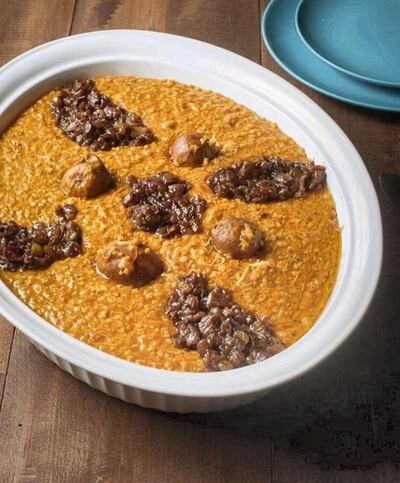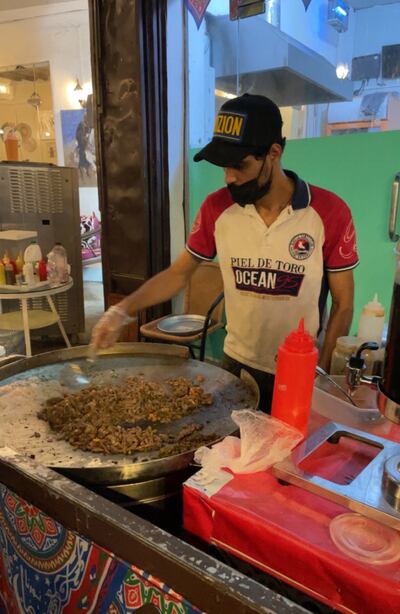The month of Ramadan is one of the most revered for Muslims as they fast during the day to strengthen their relationship with Allah.
It is also a month marked by the importance of bringing families and communities together over an array of delicious food to break their fast.

In Saudi Arabia, much like the rest of the Muslim world, people traditionally break their fast with dates and water. In mosques, they also tend to have laban (made of yoghurt) with bread.
Once the fast is broken, typical Saudi Ramadan dishes are some of the most flavoursome around.
Traditional bread, tamis and fava beans accompany a warm soup and Sambusa that is ingested to ease the digestive system into the richer, more filling main courses.
Saudi dishes such as jareesh (a stew made from lamb, with wheat vegetables) or saleeg (a rich dish served with chicken or meat) are then served as main courses.
Matazeez (flat dumplings cooked in a mixture of vegetables) and margoog (lamb and vegetable stew) are also crowd pleasers to quench the day's thirst and replenish the body with nutrients.

“We all look forward to iftars in Ramadan with the family, it's a festive and wholesome feeling,” says Amal Al Falah, a Saudi mother in Jeddah.
“My grandmother's cooking and generations coming together over an iftar spread is really a blessed feeling.”
The iftar meal ends in the kingdom with the sharing of luqaimat (sweet dough balls that are fried) or qatayef (pancakes stuffed with cream and different fillings), along with aromatic Saudi coffee.
Ramadan Season in bustling streets of Al Balad
Ramadan evenings are arguably some of the busiest of the year in Saudi Arabia.
People love to gather around food with family and friends in different settings whether for iftar or suhoor.
This is why the Saudi Ministry of Culture has launched Ramadan Season to take place in Jeddah, Makkah and Riyadh throughout the holy month.
The season celebrates the kingdom's cultural heritage with a wide range of events, including Quran memorising, calligraphy workshops, shopping and retail.
And nowhere is this display of traditions and Saudi history more prominent than in Jeddah's historic district of Al Balad.
Listed as a Unesco World Heritage Site in 2014, Al Balad is a magnet for tourists and residents alike, with the traditional Ramadan food being a major draw for visitors who come to try the fried kibdah, balila and fries served with a secret sauce.
“I always go to Al Balad with my father, and he used to go with my grandfather," says Diala Tayeb, a Saudi social media specialist, in Jeddah.
“It's a tradition in our family. We always go to Al Balad and experience the local food and culture.

“We always have balila [chick peas] and traditional fried kibdah [fried liver] which you can find at any of the street food outlets."
Al Balad comes alive during the holy month with men singing and dancing to traditional songs, children playing carom — a type of billiards — and enjoying games, an outdoor cinema with beanbags for people to watch popular Ramadan TV shows with their families.
“I like simple things that taste so different and wonderful in Al Balad,” says Saeed Al Shukaily, who was showing his son the historic neighbourhood. "I love eating foul and tamis or hummus, have the traditional tea and coffee while walking around.
“Ramadan vibes in Al Balad and actually everywhere, with the decorations, are great.”
Saudi PhD student Ashwag Hussain, who studies in France, has comes back to experience Ramadan in her hometown of Jeddah.
“Saudi Arabia is the best place to be because you feel like we are all in this together, “she said. "When I was studying in France, you just didn't get the vibe or the same food, it makes such a big difference.
“I love snacking on French fries, logaimat and qatayef, while roaming the busy streets with my younger siblings, who get free sweets and gifts from everywhere we go — it's lovely.”

